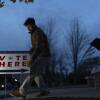Addressing an old injustice, Major League Baseball will now officially recognize Negro Leagues’ baseball statistics. The feats of Black superstars like Josh Gibson and Oscar Charleston will enter the record books alongside those of Babe Ruth, Ty Cobb, and other immortals.
My reaction as a Black man, lifelong baseball fan, and founder of an urban baseball program working to keep the sport alive in the ‘hood?
Great, but what took you so long?
Also, why isn’t MLB just as focused on baseball’s future as on its racially troubled past? When so few of its players, fans, and team officials are Black? When its talent pipeline is humming in places like the Dominican Republic but not so much in Boston, Detroit, Chicago or other U.S. cities where programs like mine scramble for resources?
I understand we’re living in a moment of racial reckoning. And I celebrate the legacy of the Negro Leagues themselves. For decades, until MLB’s integration shut them down, these leagues were the foundation of American baseball.
They had racial diversity. They had female ownership (Effa Manley of the Newark Eagles – look her up). They had talent on the field (man, did they have talent). They provided a sense of community to Black folks that was hard to find elsewhere.
What they did not have, and what programs like ours provide, is equal access and opportunity. In our case, that means instilling a love for baseball, and the means to play it, in Black and brown youths who might otherwise pursue different sports. Or none at all.
At The BASE, which I founded eight years ago, we combine year-round training and organized competition with academic- and career-prep tools for hundreds of student athletes annually. Their families pay nothing.
Besides top-flight coaching and state-of-the-art training facilities, what else do we offer? College and career fairs. Pledged college scholarships. Job-training programs. Corporate internships. The chance to play with and against some of the country’s best urban baseball programs at our very own National Urban Baseball Classic, held annually in Boston.
Whether or not our alumni play college ball, or even get drafted by the pros, what they learn about teamwork and leadership are values every MLB franchise likes to promote. Yet baseball’s fan base is aging and hardly growing more diverse as it competes against other sports for talent and interest.
So, if rewriting the record books is a welcome step toward MLB’s own racial reckoning, what’s next?
One move might be partnering with HBCUs to invest in their baseball programs. Even there, team rosters – with Black participation stuck in single digits -- are far whiter than one might suppose.
These programs could be pipelines for interest and access as the number of Blacks on MLB rosters continues to shrink. Teams running baseball academies in the DR should ask themselves, are we ignoring talent pools in our own backyards? I’d argue they can no longer afford to do so.
Also, MLB could support Black folks around the country who are already running inner-city baseball programs. Some of them might serve on an advisory group with access to the Commissioner’s Office. Right now, just two percent of philanthropic dollars go to Black-run community organizations.
That figure is as overdue for change as Cooperstown’s stats are. Baseball could lead the way, not as an act of charity but an investment in its own survival.
Finally, look at the showcase tournaments that attract dozens of college coaches and pro scouts every summer. The programs represented are overwhelmingly white, suburban, and run on a pay-to-play model. Black and Latino players are rare.
Come to our Urban Classic, however, and you’ll see ballplayers every bit as talented as those spending thousands a year to suit up and play – yet they’re overwhelmingly Black and brown.
Our tournaments have a much different vibe, too. Teams freely mingle with other teams. Players eat together, relax together, room in dorms together, tour college campuses together, and often form lasting friendships that carry over long after they go back home.
MLB ought to be looking at our Classic as a model for building a more diverse community of players and fans who bond over a mutual love of the sport despite their geographical and cultural differences.
How to groom the next generation of Black players is something I think about a lot these days.
I see athletes in all sports stepping up and protesting racial injustice. I hear from teams, including my hometown Red Sox, who believe in our mission and want to make a difference. I see baseball’s future reflected in the hearts, minds and skills of BASE student-athletes who share my love for the game and deserve more support from the baseball establishment.
So, when I ask MLB, what took you so long, I also ask: What other numbers are you ready to change?
Robert Lewis Jr. is the founder and president of The Base, a Boston non-profit with a mission of shifting the national mindset.




